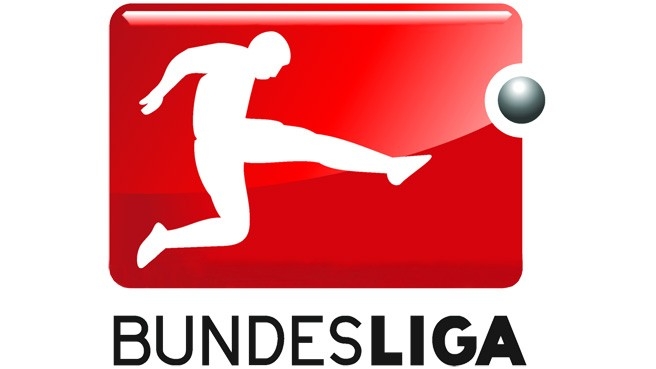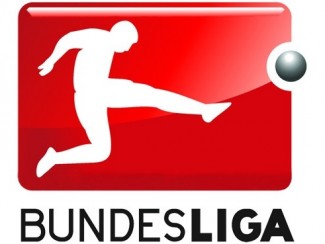
The Bundesliga is a professional association football league in Germany and the football league with the highest average stadium attendance worldwide. At the top of the German football league system, the Bundesliga is Germany’s primary football competition. The Bundesliga is contested by 18 teams and operates on a system of promotion and relegation with the 2. Bundesliga. Seasons run from August to May. Most games are played on Saturdays and Sundays, with a few games played during weekdays. All of the Bundesliga clubs qualify for the DFB-Pokal. The winner of the Bundesliga qualifies for the DFL-Supercup.
A total of 53 clubs have competed in the Bundesliga since its founding. FC Bayern Munich has won the Bundesliga the most, winning the title 24 times. However, the Bundesliga has seen other champions with Borussia Dortmund, Hamburger SV, Werder Bremen, Borussia Mönchengladbach and VfB Stuttgart most prominent among them. The Bundesliga is one of the top national leagues, currently ranked 3rd in Europe according to UEFA’s league coefficient ranking, based on performances in European competitions over the past five seasons. The Bundesliga is the number one football league in the world in terms of average attendance; out of all sports, its average of 45,134 fans per game during the 2011–12 season was the second highest of any sports league in the world after the National Football League. The Bundesliga is broadcast on television in over 200 countries.
The Bundesliga was founded in 1962 in Dortmund and the first season started in 1963. The structure and organisation of the Bundesliga along with Germany’s other football leagues have undergone frequent changes right up to the present day. The Bundesliga was originally founded by the Deutscher Fußball-Bund (English: German Football Association), but is now operated by the Deutsche Fußball Liga
Origins
Prior to the formation of the Bundesliga, German football was played at an amateur level in a large number of sub-regional leagues until, in 1949, part-time (semi-) professionalism was introduced and only five regional Oberligen (Premier Leagues) remained. Regional champions and runners-up played a series of playoff matches for the right to compete in a final game for the national championship. On 28 January 1900, a national association, the Deutscher Fußball Bund (DFB) had been founded in Leipzig with 86 member clubs. The first recognised national championship team was VfB Leipzig, who beat DFC Prague 7–2 in a game played at Altona on 31 May 1903.
Through the 1950s, there were continued calls for the formation of a central professional league, especially as professional leagues in other countries began to draw Germany’s best players away from the semi-professional domestic leagues. At the international level the German game began to falter as German teams often fared poorly against professional teams from other countries. A key supporter of the central league concept was national team head coach Sepp Herberger who said, “If we want to remain competitive internationally, we have to raise our expectations at the national level.”
Meanwhile, in East Germany, a separate league was established with the formation of the DS-Oberliga (Deutscher Sportausschuss Oberliga) in 1950. The league was renamed the Football Oberliga DFV in 1958 and was generally referred to simply as the DDR-Liga or DDR-Oberliga. The league fielded 14 teams with two relegation spots.
| Season | Bundesliga Champion | Season | Bundesliga Champion | Season | Bundesliga Champion | Season | Bundesliga Champion | |||
| 63–64 | 1. FC Köln | 77–78 | 1. FC Köln | 91–92 | VfB Stuttgart | 05–06 | FC Bayern Munich | |||
| 64–65 | SV Werder Bremen | 78–79 | Hamburger SV | 92–93 | SV Werder Bremen | 06–07 | VfB Stuttgart | |||
| 65–66 | TSV 1860 München | 79–80 | FC Bayern Munich | 93–94 | FC Bayern Munich | 07–08 | FC Bayern Munich | |||
| 66–67 | Eintracht Braunschweig | 80–81 | FC Bayern Munich | 94–95 | Borussia Dortmund | 08–09 | VfL Wolfsburg | |||
| 67–68 | 1. FC Nürnberg | 81–82 | Hamburger SV | 95–96 | Borussia Dortmund | 09–10 | FC Bayern Munich | |||
| 68–69 | FC Bayern Munich | 82–83 | Hamburger SV | 96–97 | FC Bayern Munich | 10–11 | Borussia Dortmund | |||
| 69–70 | Borussia Mönchengladbach | 83–84 | VfB Stuttgart | 97–98 | 1. FC Kaiserslautern | 11–12 | Borussia Dortmund | |||
| 70–71 | Borussia Mönchengladbach | 84–85 | FC Bayern Munich | 98–99 | FC Bayern Munich | 12–13 | FC Bayern Munich | |||
| 71–72 | FC Bayern Munich | 85–86 | FC Bayern Munich | 99–00 | FC Bayern Munich | 13–14 | FC Bayern Munich | |||
| 72–73 | FC Bayern Munich | 86–87 | FC Bayern Munich | 00–01 | FC Bayern Munich | 14–15 | FC Bayern Munich | |||
| 73–74 | FC Bayern Munich | 87–88 | SV Werder Bremen | 01–02 | Borussia Dortmund | |||||
| 74–75 | Borussia Mönchengladbach | 88–89 | FC Bayern Munich | 02–03 | FC Bayern Munich | |||||
| 75–76 | Borussia Mönchengladbach | 89–90 | FC Bayern Munich | 03–04 | SV Werder Bremen | |||||
| 76–77 | Borussia Mönchengladbach | 90–91 | 1. FC Kaiserslautern | 04–05 | FC Bayern Munich |



